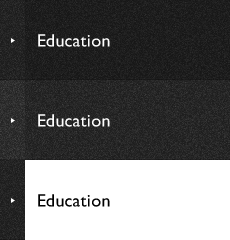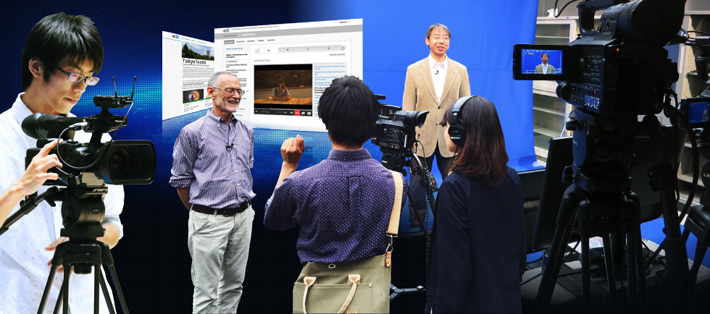
In 2015, Tokyo Tech started offering TokyoTechX MOOCs, online courses delivered worldwide through the edX platform, beginning in part the implementation of its new education system. The Institute's decision to join world-leading universities and strengthen its online presence is an achievement, particularly because student teaching assistants (TAs) are taking active roles in the creation of the virtual classroom.
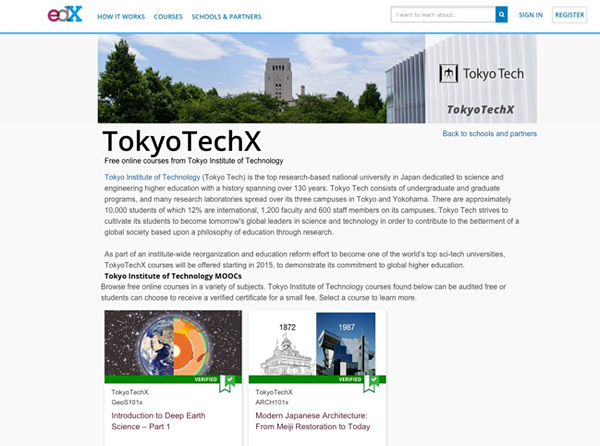
TokyoTechX page on edX MOOC consortium web site (October 2015)
Tokyo Tech's online learning foray
Tokyo Tech's first MOOC, Introduction to Deep Earth Science - Part 1, started on October 7. With an enrollment of several thousand students from 150 countries, it is Tokyo Tech's most-enrolled and diverse course thus far. Taught by Professor Kei Hirose, director of the Earth-Life Science Institute (ELSI), the course focuses on the Earth's core, mantle, and crust, utilizing video lectures with transcripts and text produced by TAs.
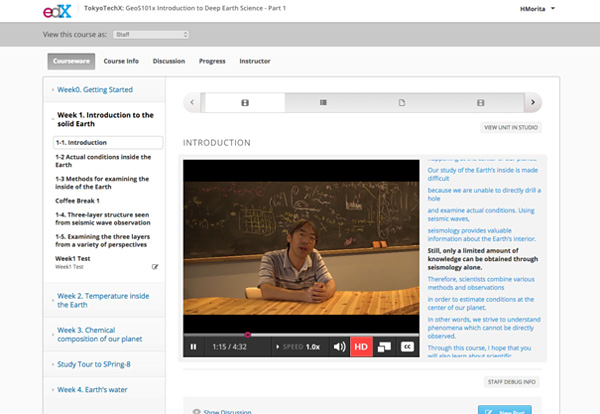
Introduction to Deep Earth Science - Part 1 screenshot from Week 1
Tokyo Tech's second MOOC, Modern Japanese Architecture: From Meiji Restoration to Today, due to kick off soon, is a unique course. Professor David B. Stewart, who has been teaching at the Institute since 1976, talks with students about the history of and concepts behind modern Japanese architecture. The course also introduces Tokyo Tech's renowned faculty, who are practicing architects, and buildings on the Ookayama Campus.
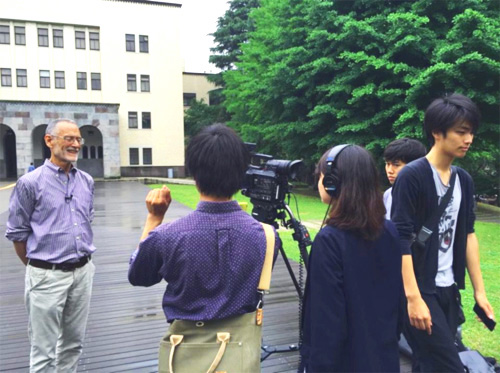
Professor Stewart recording a video segment in front of the Main Building
Collaboration with student TAs
Since MOOCs are open to anyone with internet access, special consideration during the production phase is given to accessibility — legibility and content clarity by utilizing subtitles and transcripts, word choice, and the like. As the average attention span of learners is approximately 10 minutes, creating easy-to-understand video lectures is essential in order to engage and sustain learners' interest.
At Tokyo Tech, the Online Education Development Office (OEDO), established in December 2014, develops MOOC content with staff and TAs playing the central role. OEDO activities have attracted roughly 30 TAs, primarily by word of mouth. Some TAs wish to utilize their English language skills and discipline-based knowledge in the MOOC with the learners. Others are interested in developing educational technology through the creation, shooting, and editing of video lectures, as well as learning how to design online courses. Whatever their motivation, students work in teams, collaborating closely with OEDO's Associate Professor Hideki Mori with supervision by Professor Jeffrey S. Cross.
In the case of "Introduction to Deep Earth Science - Part 1", Professor Hirose first devised the course content and learning objectives, after which TAs edited lecture transcripts and slides, producing a learner-friendly script.
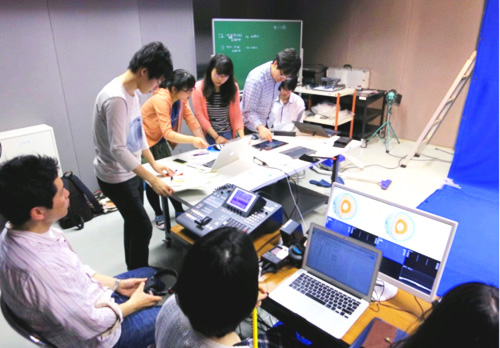
TAs and staff working in the OEDO studio
Comments from OEDO manager, Professor Jeffrey S. Cross
In OEDO, we are very enthusiastic about online course development overall. We are presently developing four MOOCs for edX by Spring 2016, in order to provide Tokyo Tech courses to students worldwide.
In addition, we are setting up a do-it-yourself video lecture recording system for faculty on the Ookayama Campus. Digital media utilization for education has the potential to improve learning and teaching in a blended learning format, and related know-how in course creation can also be used for training purposes such as in faculty development and laboratory safety training for students.
Aiming to become one of the world's top 10 research universities
Tokyo Tech is formulating a new education system to be implemented in April 2016. This education reform will mean improvements not only in organization and content, but also in learning and teaching methods. TokyoTechX MOOCs are one effort in which faculty members and students are working together to enhance education, all the while delivering the Institute's courses to learners around the world.
The Special Topics component of the Tokyo Tech Website shines a spotlight on recent developments in research and education, achievements of its community members, and special events and news from the Institute.
Past features can be viewed in the Special Topics Gallery.
Published: October 2015
. Any information published on this site will be valid in relation to Science Tokyo.








